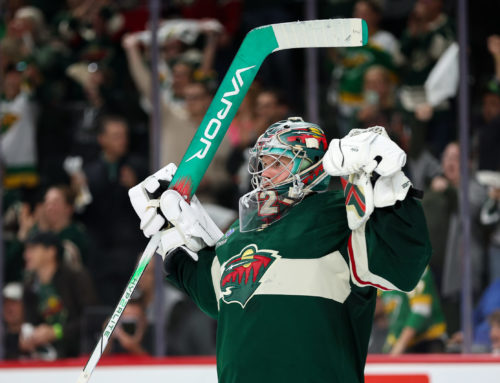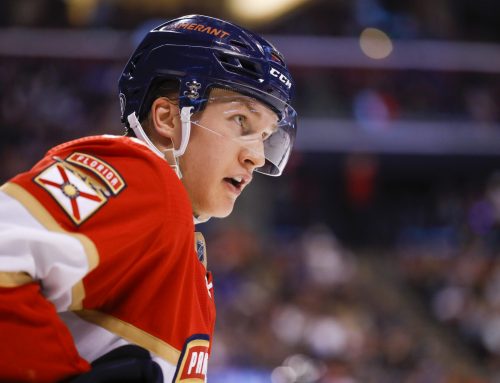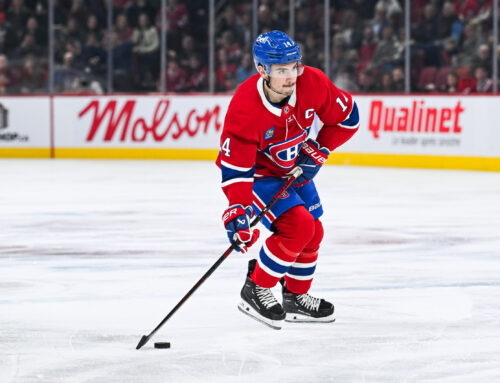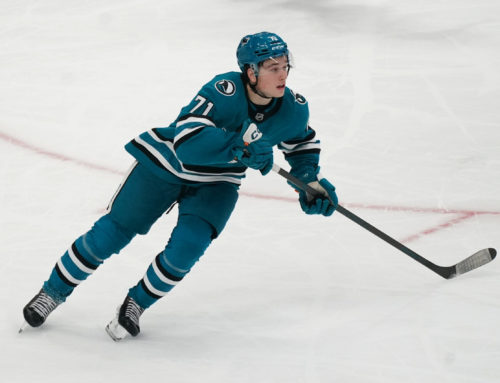
You’ve heard plenty about Schwartz this week but where does he stand in relation to Tarasenko?
In Saturday's ramblings I commented on St. Louis' forward situation pumping up Vladimir Tarasenko as a potential star for the Blues:
This means that St. Louis continues to be a crowded joint. They have so many talented forwards I won't dare to mention them but suffice it to say that they have at least 10 forwards who could all play top six minutes on another team. I do think that there's room for someone to emerge as a scoring star there – Ken Hitchcock isn't allergic to offense – but it's going to require someone to take a leap into stardom.
I'm looking squarely at Vladimir Tarasenko when I say that because there isn't another star forward on the Blues. The rest are complimentary guys. If Tarasenko wants it though, he could score like Nash in Columbus or maybe even like Modano in Dallas. He's going to have to put it all together however, and develop some good chemistry too. And Tarasenko's going to have to earn Hitchcock's complete trust too because it requires minutes to be a big scorer. Tarasenko only skated 13:24 per game last season; he needs way more ice time but he also has to earn it.
Some people (including DobberHockey's own, Jeff Angus) took issue with that sentiment feeling that I overlooked Jaden Schwartz. This led to some back and forth discussion and ultimately come Monday you had not one but two features on Schwartz. At the risk of putting you into Schwartz-hype overload it seems necessary to do a Cage Match featuring Schwartz and Tarasenko.
Not that there can only be one star in St. Louis, I just don't see Schwartz reaching that level the same way I can Tarasenko. And I really like Schwartz as a player. He is a good skater, he is smart, skilled and plays with a relentless tenacity that makes him an overachiever. He is exactly the type of player that Blues' head coach Ken Hitchcock loves because he knows how to play within a system and will do so responsibly. And there is an argument to be made that this ability to play within a system on top of an underdog/overachiever mentality and a bevy of skill will allow him to break the shackles and become a scoring star similar to the way Parise broke through on the traditionally anemic New Jersey Devils back in 2008-09.
But those same qualities that will endear Schwartz to Hitchcock and create his possibly break out could also prevent Schwartz from ever truly achieving his upside. It's entirely possible that Schwartz simply keeps his head down, fills his role and becomes yet another one of the 40-50 point drones Hitchcock has buzzing around as he rolls his lines showing very little in the way of favouritism.
Consider the plight of David Perron, the forward whose departure is supposed to open up a great opportunity for Schwartz. Perron is a similar player to Schwartz boasting quality skating, skill, tenacity and two-way hockey sense as an undersized player. Perron has a career high of 50-points. You can certainly argue that Schwartz projects to be a better pro than Perron but how long are we waiting for that to come about?
script>
Angus projects Schwartz to score 40-50 points next season, which would be an exceptional breakout for a sophomore player. 40-50 points could be considered a stepping stone on the way towards stardom OR it could be Schwartz achieving his potential within Hitchcock's system becoming just another drone.
The reason I like Tarasenko so much is because he doesn't fit quite as neatly into one of Hitchcock's boxes. Tarasenko is a dynamite one-on-one talent – the sort of player you get excited about every time he touches the puck. He is skilled enough and daring enough to make moves that may go against Hitchcock's overarching philosophy. But it's not like Tarasenko is ignorant – he can absolutely play within a system.
Tarasenko is built like a pit bull and has a relentless motor similar to that of Schwartz. His skills make him an ideal player to not only fit into Hitchcock's puck possession style but also to break free from it. The key for Tarasenko is to toe the line between responsible team play and dynamic one-on-one stuff. He will need to learn to pick his spots and earn more and more of Hitchcock's trust.
Earning that trust is of utmost importance because the Blues are deep enough – particularly on the right side – that Hitchcock can supress Tarasenko's minutes without missing much. Tarasenko averaged 13:25 per game as a rookie last season with 1:47 on the power play but saw his minutes tumble in the second half of the season when the games got more important and was a frequent healthy scratch in the playoffs. During the stretch run he averaged just 12:48 with less than a minute of power play time per game.
You can blame a lot of that on health as Tarasenko spent the second half of the season recovering from a concussion but that's something of a copout. Tarasenko didn't play or produce much in the second half because he didn't have Hitchcock's trust and it will take some doing to earn it.
The most important thing for Tarasenko will be getting those power play minutes back. Tarasenko can produce in sheltered minutes at even strength just fine but for him to reach another level he is going to need a regular shift on the top power play unit – something Hitchcock is unwilling to hand out.
Last season 10 different Blues averaged over two minutes per game on the power play. Hitchcock rolls his power play lines as much as he does his even strength lines. That's why I feel like it's going to take a star, nay a superstar, to break the mould. Someone is going to have to come along and force Hitchcock's hand.
Both Tarasenko and Schwartz need to make strides in expanding their roles in St. Louis. Both could use a boost in overall playing time and power play time to help guide them to increased production. Certainly Schwartz has more room to grow because he saw much less playing time than Tarasenko last season (particularly on the power play) but also because the minutes on the left side appear wide open next season. Schwartz also has a leg up in that he already plays the responsible style that will gain you Hitchcock's trust in a hurry.
I just can't shake the notion that Tarasenko's offensive talents are greater than Schwartz's. He proved it last season when he scored 19 points in 38 games last season versus Schwartz's 13 in 45 (albeit with less power play time).
However, one stat that Angus quotes as being favourable for Schwartz is his per-60 five-on-five scoring where Schwartz ranked fifth on the Blues last season. Tarasenko happened to finish second on the Blues in that stat so you can disregard the notion that Tarasenko scored better than Schwartz last season simply because of power play time. There are, of course, the requisite small sample size caveats in play here but I don't see any issue with cherry picking a stat already being used to pump up Schwartz.
I also have yet to mention that this was Tarasenko's first season playing in North America and that he did so without anything resembling a training camp. Schwartz has been playing in North America for years (obviously) and while he also has yet to receive a true NHL training camp he at least had some NHL experience coming into last season following his end-of-season cup of coffee in 2011-12. Next season could be one of huge growth for Tarasenko as he improves his knowledge of the North American game and the Blues' system.
I'm not anticipating a huge breakout season for Tarasenko just yet because I don't think he will earn Hitchcock's trust before the start of next season but I also think he could get 40-50 points skating limited minutes. According to Angus, Schwartz could score that much next season in a vastly expanded role. That points to Tarasenko having much more upside so long term, he is the guy I am digging.
// ]]>





 MTL
MTL VGK
VGK OTT
OTT CGY
CGY DET
DET ANA
ANA NSH
NSH L.A
L.A
